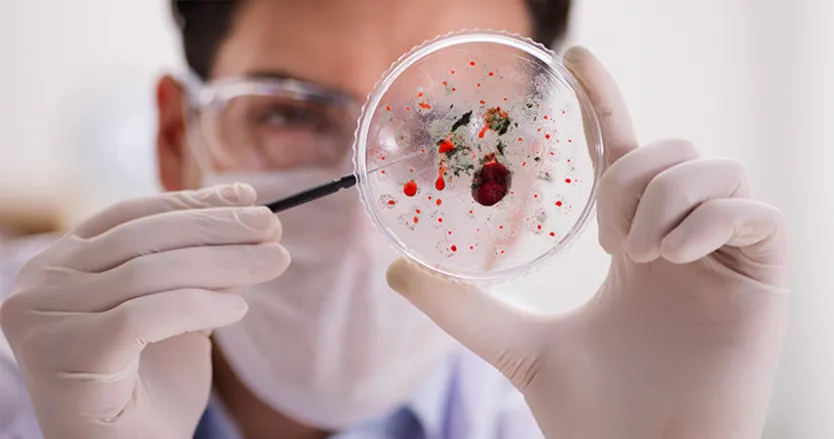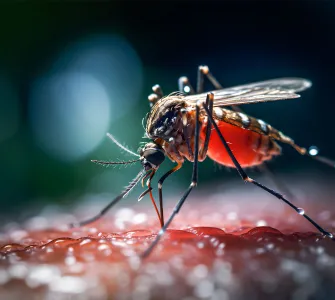Fighting dengue: exploring future strategies


Dengue can affect millions of people around the world every year, and have been increasing dramatically.1
One projection estimates that more than six billion people (60% of the world’s population) could be at risk of dengue infection by 2080.2
But it’s not all bad news. People now recognize just how significant dengue burden can be, and that urgent action is needed to stop the spread of the disease.1,2
Innovative approaches: A glimpse into the future
Until recently, attempts to control the dengue virus mainly involved killing mosquitoes or targeting their breeding sites.3 Now scientists are looking at new ways to reduce infected mosquito numbers.
These include altering genes in male mosquitoes to prevent them from breeding,3,4 and infecting mosquitoes with a bacteria called Wolbachia, which seems to stop them transmitting the dengue virus.3
Additional treatments for the disease are also being developed. Drugs called antivirals work by reducing the level of virus in an infected person. People who have a high level of virus in their blood can be more likely to develop severe dengue, so a drug like this could help them if they are given it in time.5
The use of vaccinations with good safety and efficacy profiles can be an important step in controlling dengue and helping to reduce its impact.6 Some vaccines have recently become available and several are in development too.6,7 The Centers for Disease Control and Prevention and World Health Organization have information on current dengue vaccines and the status of ones in development.6,8
Developments in disease tracking and prediction
Scientists are also developing new ways to track the disease and to help predict outbreaks. Understanding how the dengue virus spreads can help governments to target resources more effectively.9
Alongside the mainstay of traditional vector control, the combination of modified mosquitoes, developing vaccines and new drugs, as well as disease monitoring can all help in fighting dengue.5,6,9-11
References
World Health Organization. Dengue and Severe Dengue. Available at: https://www.who.int/news-room/fact-sheets/detail/dengue-and-severe-dengue. Accessed November 2023.
Messina, JP. et al. Nature Microbiology. 2019;4:1508–1515. Available at: https://www.nature.com/articles/s41564-019-0476-8. Accessed June 2021.
Simmons, CP. et al. N Engl J Med. 2012;366:1423-1432. Available at: https://www.nejm.org/doi/full/10.1056/NEJMra1110265. Accessed November 2023.
University of Oxford. Defeating dengue with GM mosquitoes. Available at: https://www.ox.ac.uk/research/research-impact/defeating-dengue-gm-mosquitoes. Accessed November 2023.
Scitable by Nature Education. Future Dengue Fever Treatments. Available at: https://www.nature.com/scitable/topicpage/future-dengue-fever-treatments-22404960/. Accessed November 2023.
World Health Organization. Vaccines and immunization: Dengue. Available at: https://www.who.int/news-room/questions-and-answers/item/dengue-vaccines. Accessed January 2024.
Kariyawasam R. et al. Ther Adv Infect Dis. 2023;10:20499361231167274.
Centers for Disease Control and Prevention. Available at: https://www.cdc.gov/vaccines/vpd/dengue/public/index.html. Accessed January 2024.
World Health Organization. Dengue and severe dengue: Monitoring and evaluation of programmes. Available at: https://www.who.int/teams/control-of-neglected-tropical-diseases/dengue-and-severe-dengue/monitoring-and-evaluation-of-programmes. Accessed January 2024.
Powell JR. Genetics. 2022;221(3):iyac072.
Louis VR. et al. Pathog Glob Health. 2016;110(2):79-86. Available at: https://www.tandfonline.com/doi/full/10.1080/20477724.2016.1175158. Accessed January 2024.


























